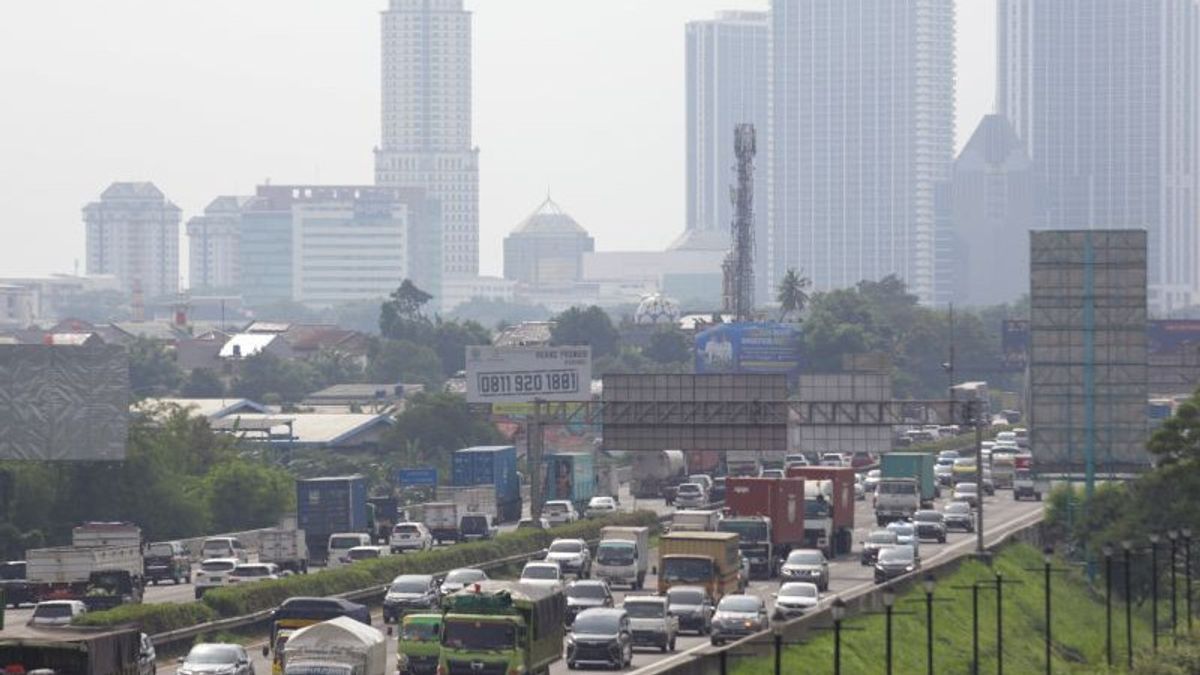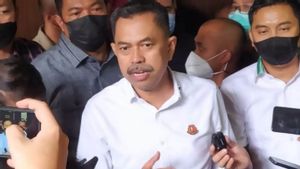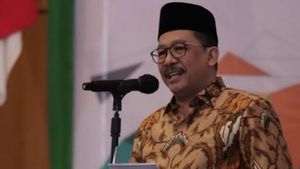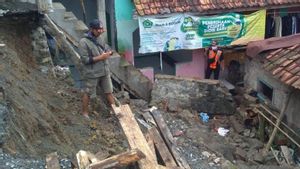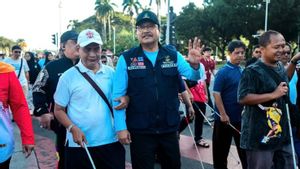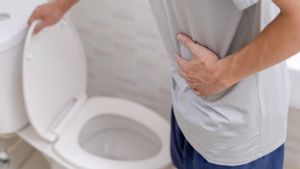JAKARTA - The DKI Jakarta Provincial Government stated that Jakarta's air quality from 2012 to 2021 will continue to improve significantly.
The Head of Environmental Impact Control at the DKI Jakarta Environmental Service, Yusiono Anwar, claimed that the DKI Jakarta Air Pollution Standard Index (ISPU) during January-December 2021 did not experience a single day of very unhealthy conditions.
"In the monitoring that we have carried out on various parameters from January to December 2021, the dominance is in blue, which is a moderate condition. It means that it is safe to carry out outdoor activities", said Yusiono during a discussion in Jakarta, Antara on Thursday, December 30.
This moderate condition is still lower than the quality of air pollution in 2020 with 244 days of moderate pollution, 90 days of unhealthy category, 29 days of good condition. But there are three days of very unhealthy pollution conditions.
"But the trend is decreasing from year to year for unhealthy and very unhealthy days, especially in 2021 for the unhealthy category of 151 days and very unhealthy for 116 days, but without days it is very unhealthy", he said.
For sources of air pollution, Yusiono said, of the six parameters calculated, namely sulfur dioxide (SO2), nitrogen oxides (NOx), carbon monoxide (CO), particular meter measuring 10 microns (PM10), particular meter measuring 2.5 microns ( PM2.5) and black carbon (BC), five of which are sourced from transportation.
While the manufacturing industry causes the highest pollution in sulfur dioxide.
To improve air quality, said Yusiono, it is supported by the issuance of Regional Regulation 2 of 2005 concerning Air Quality Control, Gubernatorial Regulation 12 of 2016 concerning Motorized Vehicle Free Days, Governor's Instruction 66 of 2019 concerning Air Quality Control, and Gubernatorial Regulation 66 of 2020 concerning Motor Vehicle Exhaust Emission Tests.
City planning and environmental observer Nirwono Joga welcomed the trend of improving air quality in Jakarta. But he stressed that Jakarta needs to have a road map and master plan to make the city free from pollution.
Nirwono said, to improve air quality in Jakarta, the sources of air pollution must be addressed.
"With research results stating that the main source of pollution is transportation, there is no choice, we have to focus on dealing with air pollutant sources by developing transportation with the development of transit locations", he said.
Then, encourage people's lifestyle changes from using public transportation to activities using vehicles or low-emission methods (walking or cycling) and optimizing reforestation such as planting large trees and adding new green open spaces.
Then the development of areas that limit the movement of motorized vehicles in urban centers (Old Town, Ancol, Monas, GBK, Kemayoran TMII) and settlements (Menteng, Kebayoran Baru, Pondok Indah, PIK and Kelapa Gading).
SEE ALSO:
Then harmonize the Presidential Regulation on Spatial Planning (Perpres 60/2020) and the Jakarta transportation master plan (Perpres 55/2018).
Then complete homework, namely implementing electronic paid roads, expanding odd-even, progressive parking, conducting emission tests, developing environmentally-friendly vehicles and meeting parking pockets at terminal/station/bus stops.
To maximize reforestation, Nirwono suggested that when making documents such as extending the STNK, making a Birth Certificate, to making a marriage certificate, it was mandatory to buy, donate or plant trees.
"Of course this needs a tree planting master plan so that if there is a program like this, the community knows what type of trees they plant or donate and where they are planted so that the target of adding 10 million trees by 2030 can be achieved", he said.
The English, Chinese, Japanese, Arabic, and French versions are automatically generated by the AI. So there may still be inaccuracies in translating, please always see Indonesian as our main language. (system supported by DigitalSiber.id)
